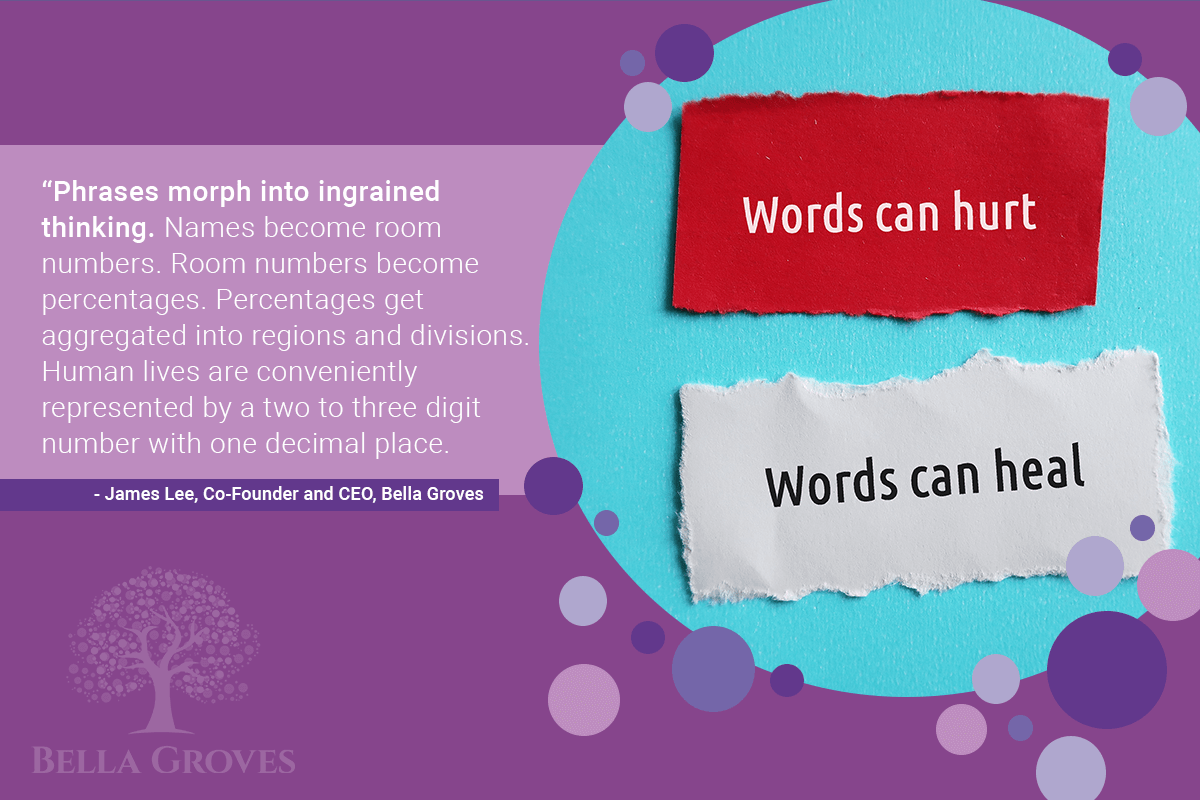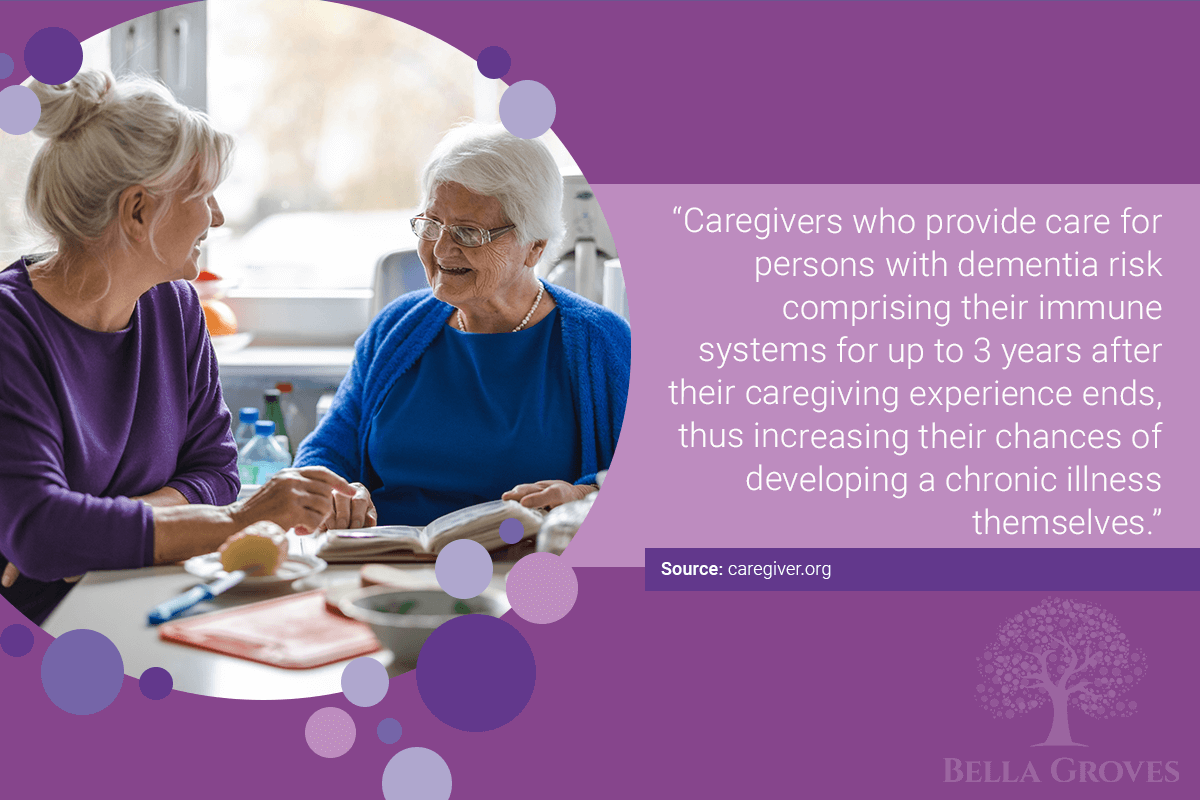
The Dangers of Euphemisms and Sayings
“Sticks and stones may break my bones, but words can never hurt me.”
It’s a phrase that all of us have grown up with, whether a teacher or parent told it to us as children to help us cope with bullying or as a personal reminder to ourselves to ignore the hateful words of others. Perhaps nothing is more powerful than words, especially the usage of language that’s meant to demean others. It’s one thing to build an armor of self-worth and resilience and keep an understanding that only we can permit these words to cause ourselves any injury, but it’s essential to think about the effects that euphemisms, idioms, and sayings harbor.
At Bella Groves, our mission is to create a joyful community for families and individuals affected by dementia. Through dementia education and compassionate care, we’re here to stand by your side during your journey.
The Power of Expressions: Understanding the Impact of Language
Every workplace, industry, and culture has its own set of euphemisms and sayings. These expressions are the verbal equivalent of a handshake for specific groups, as they help us feel connected to those around us. However, when we aren’t careful with our words, they can lead to negative consequences. Words have power and the potential to hurt or heal.
When interacting with someone affected by dementia, it’s important to be mindful of the language we use. It’s easy to fall into using phrases like “she’s gone off her rocker” or “he’s losing his marbles.” These expressions may seem harmless, but they reinforce negative stereotypes and diminish the person’s worth and dignity. Our words should never demean or belittle anyone, especially those who are going through a difficult time.
“Elderspeak” and Dementia
Any person living with a form of dementia can experience problems with language, as the condition affects the parts of the brain that control speaking and communication. This typically depends on the type of dementia a person has, the stage of the progression of dementia, the individual’s personality, and even the ways that they have typically managed language in the past.
Remember that dementia also affects how a person thinks, which impacts the ability to follow a conversation. They might not understand what you have just said or were unable to focus on a person’s response.
“Elderspeak” is often a common response to these communication issues; elderspeak refers to the way that some people talk to older adults in general, but especially to those living with a form of dementia. It can involve speaking slowly, using a higher-pitched voice, and including terms of endearment like “sweetheart” or “honey.” While it might feel like a natural response to a person facing communication problems, it actually infantilizes the individual, making them feel as though they’re a child being spoken to by an adult.
Inclusivity and Language
When a person is unable to communicate their feelings or express themselves to others, it leads to a loss of confidence, causing anxiety and depression and even causing a person to become withdrawn from conversations out of fear they might say the wrong thing and be ridiculed as a result.
As a caregiver or a family member, it’s your duty and responsibility to ensure that the way you communicate with your loved one progresses and changes with each stage of dementia. This can help create a unique language between yourself and your loved one, ensuring that they can understand their needs and preferences, even when they’re having difficulties finding the right words.
Be sure to express any communication changes to other family members and close friends, and explain how utilizing these methods is beneficial to the success of your loved ones’ journey. By sharing important dementia education, whether that be through resources or simple word of mouth, you’ll be able to help those close to your loved one understand more about the situation at hand.
Whether it’s dementia education, a supportive community, or a residential care setting, Bella Groves has a service level for all individuals and families affected by dementia. It’s our goal to help you find the resources and support you need to best care for your loved one during each stage of dementia: remember, dementia will progress, and we want to be there for you each step of the way.
Contact our memory care team in San Antonio to learn more about our mission at Bella Groves.


